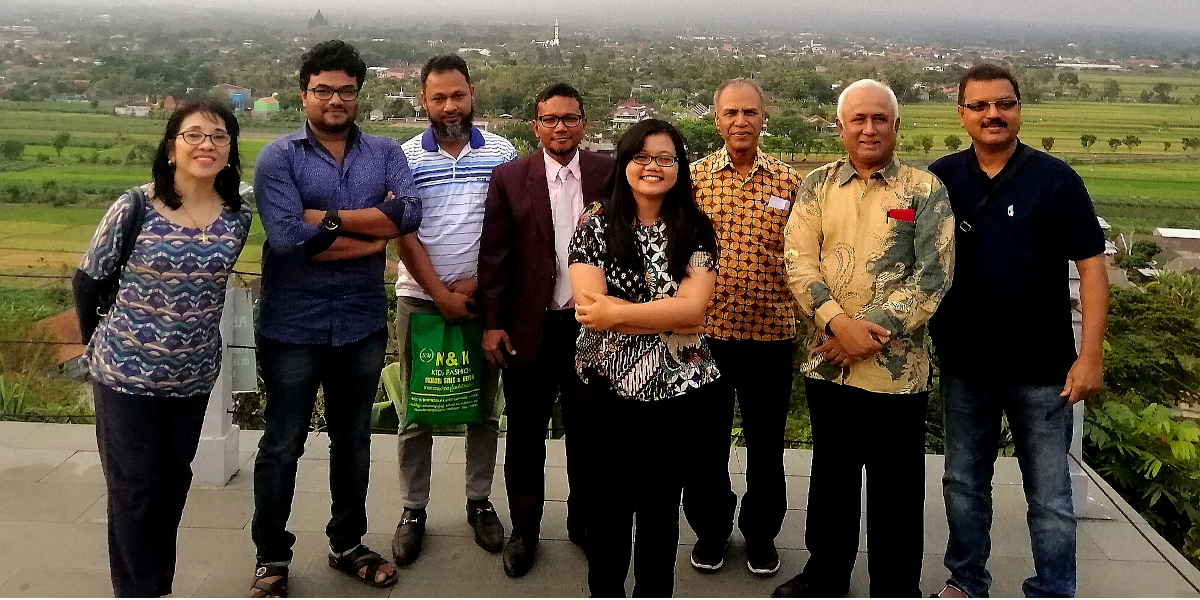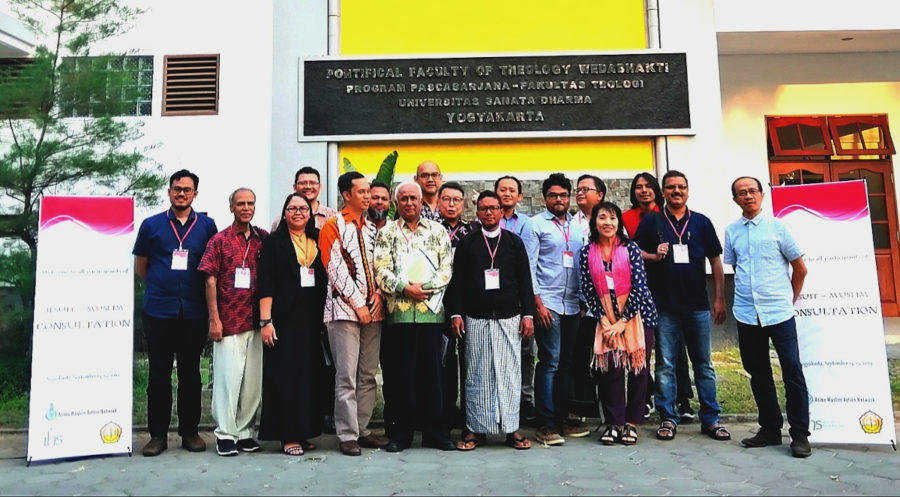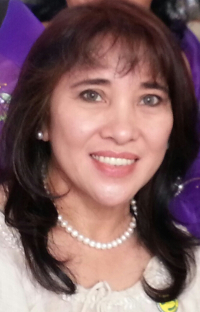 Interfaith dialogue is not for the faint-hearted. The challenges that come with the territory are many and difficult. Successful initiatives are usually sustained by visions that give collective efforts meaning and direction. In interfaith dialogue, the vision is usually of a better world where unity and harmony among peoples of diverse cultures and beliefs are realised from the heart of faith.
Interfaith dialogue is not for the faint-hearted. The challenges that come with the territory are many and difficult. Successful initiatives are usually sustained by visions that give collective efforts meaning and direction. In interfaith dialogue, the vision is usually of a better world where unity and harmony among peoples of diverse cultures and beliefs are realised from the heart of faith.
Meeting Fr Greg Soetomo SJ at the Ateneo de Manila University in mid-2017 was another “call” of faith in my two decades of journey in the field. Fr Greg, an Indonesian Jesuit, currently serves as the Coordinator for Dialogue with Islam of the Jesuit Conference of Asia Pacific (JCAP). Upon his invitation, Mona Lisa Pangan and I attended our first meeting with Jesuits among Muslims in Asia (JAMIA) in Negombo, Sri Lanka late in December 2018.
Mona is a young and feisty woman from Xavier University in Cagayan de Oro City, Mindanao who has been actively engaged in promoting various forms of Muslim-Christian dialogue in that conflict-ridden southern region of the Philippines. We both appreciate the efforts of our Jesuit brothers to live up to their Universal Apostolic Preferences in the area of reconciliation. We see that this offers many avenues for them to address–through mutually respectful Muslim-Christian collaboration–such pressing problems as the climate crisis, poverty, violent extremism and conflict.
The conference of JAMIA in Sri Lanka was followed nine months later by a second conference held in Yogyakarta, Indonesia from September 14-15, 2019.
The Yogyakarta conference was significant because it was the first time that the Jesuits met and worked together with members of the Asian Muslim Action Network (AMAN). Their work together unfolded not without its challenges. But everyone was earnest about crafting curriculums for various educational programmes that, as JCAP President Fr Antonio F Moreno SJ emphasised at the Sri Lanka conference, would be responsive to the “call” to service among Jesuits labouring in this area of ministry. The programmes that would be finalised would be part of a five-year plan which could be turned into project proposals for possible funding, he said. This was the challenge and invitation issued to JAMIA then that was being responded to promptly at the conference in Yogyakarta.
AMAN and JAMIA took the first step in turning into action their shared vision of mutually respectful and harmonious relationships between Muslims and Christians in Asia.
 Among the Jesuits who welcomed AMAN were JAMIA members Fr Greg Soetomo SJ, Fr Heru Prakosa SJ, Fr Heri Setiawan SJ and Fr Sigit Setyo Wibowo SJ. They were joined by Fr JN Hariyanto SJ of the Indonesian Province and members of the academic community of Sanata Dharma University Dr Eka Priyatma and Fr P Bambang SJ who stood in for Fr Bagus Laksana SJ (who was unable to join us because his father just passed away). Other invited participants were: Dr Budi Hernawan and Ahmad Nashrullah of the International Committee of the Red Cross Indonesia, Fr Joko Lelono and Fr Sigit Pranoto SCJ.
Among the Jesuits who welcomed AMAN were JAMIA members Fr Greg Soetomo SJ, Fr Heru Prakosa SJ, Fr Heri Setiawan SJ and Fr Sigit Setyo Wibowo SJ. They were joined by Fr JN Hariyanto SJ of the Indonesian Province and members of the academic community of Sanata Dharma University Dr Eka Priyatma and Fr P Bambang SJ who stood in for Fr Bagus Laksana SJ (who was unable to join us because his father just passed away). Other invited participants were: Dr Budi Hernawan and Ahmad Nashrullah of the International Committee of the Red Cross Indonesia, Fr Joko Lelono and Fr Sigit Pranoto SCJ.
AMAN was represented by Mr Muhammad Sabur (Thailand), Mohammad Ashraf Ali (India), Mufti Dr Abdus Salam and Mr Chit Ko Ko Nasir (Myanmar), Dr Ehsanul Huq Milan, Mr Md Abdul Momen Sarker and Mr Ishak Mia (Bangladesh). They were joined by Muslim intellectuals Dr Revianto Budi Santoso and Mr Eko Riyadi from the Indonesian Islamic University of Yogyakarta.
The conference had three parts. The first part focused on presentations on Texts and Contexts with interesting presentations on The Role of Interfaith Dialogue (Muslim-Christian Relation) in the Context of Contemporary Asia. This included some sharing of perspectives on what can be done and of experiences in the fields of conflict.
The second part was where the collaborative work was most intense. Participants were divided into working groups to craft programme modules for three different areas of engagement, namely: university-based education and training, out of school projects and activities involving youth participants, and social work and service ministries. Each area had to cater to the need for knowledge, understanding and skills which could be useful in addressing poverty and injustice, the climate crisis, political economy, conflict transformation and peacebuilding.
The third part was brief but inspiring as each group shared with the rest of us their respective programme modules. Each programme was a significant work-in-progress that would go through an ongoing process of development, strategic planning, implementation and evaluation within the next two years. This is to ensure that our shared visions are realised within the framework of the five-year plan of JCAP.
Much has been accomplished in the short period that the Jesuits and AMAN were together. This has set their mission of reconciliation in motion. Mona and I are happy to go with the flow of this grace-filled initiative at this point in our journey.
 Marites Guingona-Africa PhD is the founder of The Peacemakers’ Circle Foundation Inc , a non-profit Manila-based non-government organisation that promotes various forms of dialogue among peoples of diverse cultures and beliefs. She currently teaches courses on Muslim-Christian Dialogue for Nation-Building and Conflict Transformation for Peace Among Religions at the Ateneo de Manila University.
Marites Guingona-Africa PhD is the founder of The Peacemakers’ Circle Foundation Inc , a non-profit Manila-based non-government organisation that promotes various forms of dialogue among peoples of diverse cultures and beliefs. She currently teaches courses on Muslim-Christian Dialogue for Nation-Building and Conflict Transformation for Peace Among Religions at the Ateneo de Manila University.

